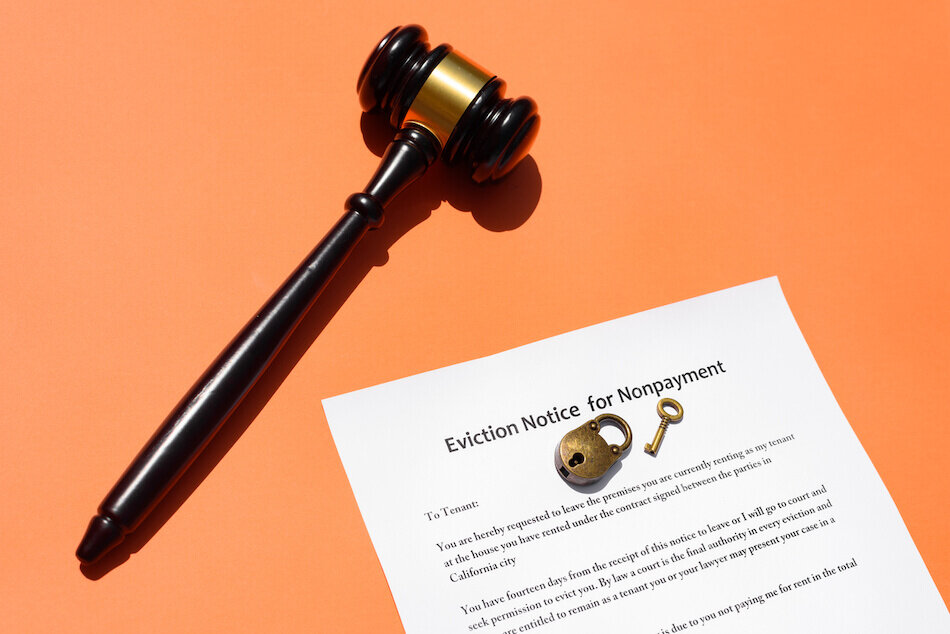
Non-payment of rent is one of the most common reasons why landlords seek to evict tenants in Ontario. However, the eviction process for non-payment of rent can be time-consuming, and it is important for both landlords and tenants to understand the length of the process.
THE N4 : Notice to End a Tenancy Early for Non-payment of Rent
The N4 form is a legal notice that a landlord can serve to a tenant who has failed to pay rent on time. In Ontario, landlords must follow specific procedures to evict a tenant for nonpayment of rent, and the N4 is a crucial step in this process.
When serving an N4 form, landlords must provide tenants with at least 14 days’ notice to pay the outstanding rent or vacate the unit. If the tenant fails to pay the rent or move out within this time frame, the landlord can file an application with the Landlord and Tenant Board to obtain an eviction order.
It is important to note that tenants have the right to dispute an N4 form if they believe it is unfair or incorrect. Tenants can file a Tenant’s Notice to End the Tenancy Early form with the Landlord and Tenant Board, which can provide them with more time to pay the rent or dispute the notice.
If a tenant receives an N4 form, it is important to take action promptly to avoid the risk of eviction. Tenants can contact their landlord to try to negotiate a payment plan or other arrangement to avoid eviction. If this is not possible, tenants may want to consider seeking legal advice to understand their options and protect their rights.
Ensure all communication is via email, text message and documented!
For landlords, it is important to follow the proper procedures for eviction and to keep accurate records of all communications with the tenant. For tenants, it is important to understand their rights and to take action promptly to avoid the risk of eviction.
Work out a payment plan!
If a tenant in Ontario is facing financial difficulties and cannot pay their rent on time, they may be able to negotiate a payment plan with their landlord. Typically, the during the LTB hearing, they would recommend a payment plan be drafted prior to an eviction, regardless of the rent outstanding. A payment plan is a written agreement between the tenant and landlord that outlines how the outstanding rent will be paid over time. It is important for both parties to agree on the terms of the payment plan, including the amount of rent to be paid, the frequency of payments, and the timeline for repayment.
A payment plan can help the tenant avoid eviction for non-payment of rent and can also benefit the landlord by providing a clear path for rent collection. It is important to note that tenants should not agree to a payment plan that they cannot realistically afford to avoid defaulting on the agreement and facing eviction. It is important to provide a payment plan letter prior to the LTB to save time and if the tenant breaks the payment plan again prior to the hearing, it may lead to a stronger case for the landlord to support an immediate eviction.
Be Prepared for Lengthy Wait Times at the LTB!
It’s also important to note that the LTB has been facing significant backlogs in recent years, which has resulted in delays in the eviction process for non-payment of rent.
The COVID-19 pandemic has further exacerbated these delays, with many tenants experiencing financial difficulties and struggling to pay their rent on time. As a result, the LTB has been inundated with eviction applications, which has created a backlog of cases that can take months to resolve.
Landlords who are seeking to evict tenants for non-payment of rent are likely to face significant delays in the eviction process due to the backlog at the LTB. The delay in the eviction process can cause financial strain on landlords who rely on rental income to pay their mortgages and other expenses.
Tenants who are facing eviction for non-payment of rent may also experience significant stress and uncertainty due to the backlog at the LTB. Tenants may have difficulty finding new accommodation if they are evicted and may face challenges in securing affordable housing.
To address the backlog at the LTB, the government has taken steps to increase the number of adjudicators and staff at the Board. The government has also implemented a new electronic system for filing applications, which is intended to streamline the process and reduce the backlog.
Despite these efforts, it is likely that the LTB will continue to face backlogs for the foreseeable future. Landlords and tenants who are facing eviction for non-payment of rent should be prepared for delays in the process and should seek legal advice if necessary to protect their rights.
To access the N4 form please visit the website below:
https://tribunalsontario.ca/ltb/forms/
Disclaimer: The information provided in this response is intended for general informational purposes only and should not be construed as legal advice. It is not a substitute for professional legal advice and should not be relied upon as such. Laws and regulations may vary by jurisdiction, and individual circumstances may differ, so the information provided may not be applicable to all situations. If you require legal advice or assistance, please consult with a qualified legal professional.

